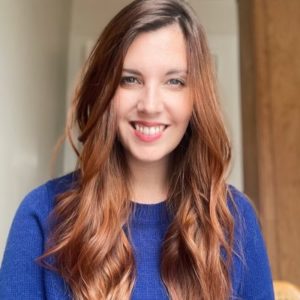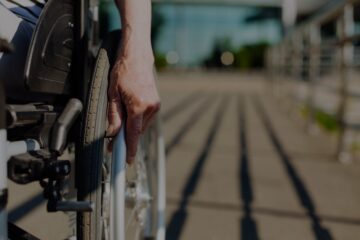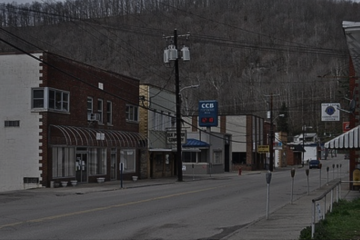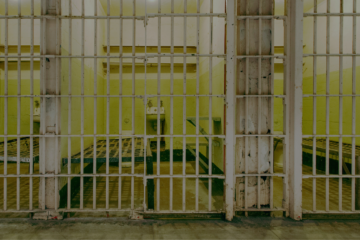Story and pictures by Amelia Knisely
Micha Webb pointed to two large piles of laundry on a table in the back room of her daycare center. “I’m actually caught up this week,” she said.
The laundry wasn’t just the usual daycare bed sheets and more in need of washing. Webb, the daycare owner, also does laundry for dozens of families whose children attend Zion Child Development Center, located on the West Side of Charleston.
Children and families didn’t have clean clothes, she said.
The majority of the center’s 70 children come from families living in poverty – 85% of the daycare’s payments are from state funds for residents in need. Their families have needs beyond child care.
“We have a handful of families right now who don’t have water,” said Webb, the daycare’s executive director.
Most families are too proud to ask for help, she said. Some families don’t have cars, plus there’s no laundromat in her part of town.
She does more than 20 commercial bags of laundry a week in the center’s two washers and dryers.

“Every parent wants their kid to have clean bedding and laundry. In some of these families, it’s not obtainable,” Webb, 42, said. “When we think of the drug epidemic, we think of what we see in videos or on Facebook … but think about how it affects you not being able to wash your clothes.”
West Virginia’s drug epidemic has changed how Zion Child Development Center operates and cares for children, but the needs – reaching beyond daily childhood care and education – are outpacing staff and funds. An increase in substance abuse followed the Covid-19 pandemic, exacerbating problems that were already widespread in the impoverished state, especially as pandemic-era benefits for families have tapered off. The drug crisis has impacted staffing, too.
Most of Webb’s students – six-week-old babies up to teenagers who use the center for after school care – have been impacted by the opioid crisis in their homes, she said. The problem impacted vulnerable children in other horrific ways; Webb said her staff has reported child physical and sexual abuse.
“You hear all these things like Covid is over, but for us, we feel like the crisis is just beginning,” she said.

EMPTY BACKPACKS SIGNALED EXTREME NEED
Right before the pandemic began, the daycare changed its backpack policy, asking parents to use clear backpacks to increase safety – one part of the daycare’s safety measures.
The switch, Webb said, ended up illuminating widespread need as the clear backpacks were regularly empty.
“Now, we could see it. They don’t have extra clothes in them. They don’t have diapers or wipes,” she said.
Zion Child Development Center is located in one of the city’s poorest areas, and most families using the center pay zero fees.
“We have a lot of single-parent families we are trying to help, and we are seeing a ton of kiddos who are being raised by grandparents. The parents have substance abuse issues,” said Webb, who has been with the center since 2011.
West Virginia has one of the nation’s highest rates of grandparents raising grandkids, according to the U.S. Census Bureau, a notable statistic in a state that also has one of the highest percentages of elderly population.
Family members raising children who are not biologically theirs can register for benefits with the state health department under what is known as kinship care. West Virginia leads the nation in the rate of kids coming into foster care, which includes children in kinship care, because of the opioid crisis. Webb noted that most families she serves forgo registering with the state due to time or legal concerns, thereby missing out on benefits like free health insurance for children, money for food and more.
“They’re not receiving any community resources, and they don’t have income,” she said.
The center has adjusted to serve whole families, including sending food home on the weekends to families and providing items on-site because many families don’t have vehicles, Webb said.
Lockers line the halls of the two-story center, filled with items families can help themselves to, like clothing (sorted and labeled by size) and shoes. Families can donate gently-used items to recycle for others. Laundry detergent, soap and diapers are also available.

The center has also adjusted its education for both children and their families in the last few years. Webb needs grant money to adjust classrooms to meet the newly-realized educational needs of toddlers, who were impacted by pandemic-spurred learning loss. Their speech is behind, she explained.
The center has taken on education gaps, and in the early days of the pandemic when schools were closed, Webb got grant money to turn her parking lot into a WiFi hotspot so kids could do their school work. The center is also helping kids with schoolwork whose grandparents are unable to meet the need.
“Can you imagine being in your 70s and having multiple children and trying to learn common core? We’re helping more and more kids with their educational needs because their grandparents don't know how to turn on tablets,” she said.
“It’s amazing all the things you don’t realize are impacting these kids.”
‘WE NEED STRONG RESOURCES’
Colorful paper butterflies and hearts, created by toddler hands, decorated the three-year-olds’ classroom at the center. In one corner, hooks displayed a row of clear backpacks; in another area, teachers had created a soft “calm down corner” for kids.
Webb knows each kid in the class and pauses her walk-through to help a few toddlers communicate their emotions with words and sign language.
“We do a lot of character building classes, and how you find relationships in the community like at church or (through) Big Brothers and Big Sisters. We talk about drugs and alcohol abuse … we need strong resources not to fall into those,” she said.
Later, the kids head outside to the center’s natural playground – a mostly grassy area with a garden, apple and pear trees, and lots of dirt (a toddler favorite).

There are dozens of kids on a waitlist for Webb’s center. But, the opioid crisis has made finding staff hard, Webb said. She could take up to 200 kids but can’t find qualified staff.
With less kids, less money comes into the center. State funding, which subsidizes children’s fees, is tied to each individual student.
“Budgeting is extremely hard… It’s a very thin income,” she said, “Day care is not something you do to make money.”
Webb relies on grants and donations to run the center and to provide additional needed resources, like clothing and diapers.
Right now, West Virginia has a cash supply to address the opioid crisis; it’s one of 46 states currently figuring out how to distribute settlement funds stemming from a multitude of opioid-related lawsuits. The state, hit hardest by the drug crisis, has so far received more than $840 million in settlement funds from a number of pharmacy retailers, prescription drug manufacturers and more. The final settlement funds may reach more than $1 billion.
There’s concern that nonprofits – those that work directly with families impacted by the opioid crisis – could miss out on money flowing into the state as a governor-appointed board will decide who receives settlement money.
Along with funding, Webb said one of the things she needs the most is more local resources for families, especially those without transportation.
She continues to think of ways her facility can be a one-stop-shop for families in need of child care and much more.
“Whether they’re in third grade and can’t write their name, or there is a child being abused and they are asking you to get them help, or they don’t have food… you never come to work and know you’re not needed,” she said.

Amelia Ferrell Knisely is an award-winning journalist in West Virginia. Originally from Rand, West Virginia, she has written for Mountain State Spotlight and the Charleston Gazette-Mail about child welfare, hunger and poverty. Ferrell Knisely also previously worked for The Tennessean in Nashville. Follow her on Twitter.



0 Comments